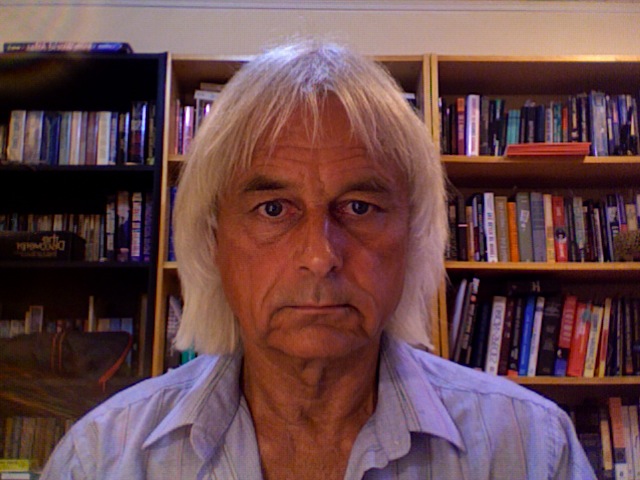John Stuart Mill described this very thing in his 1848 book, Principles of Political Economy. He called it "the capitalist cycle". Without a debt-deflation collapse (what Mill called a "revulsion") that wipes out a lot of investors' money, asset prices will remain high, and yields on assets will remain low. I think that's a reasonable price to avoid collapse.
{Mill was assuming a fixed supply money system -- gold -- so rather than wiping out credits and debts, the low-yield environment induced speculative money-losing investments that "redistributed" the gold, so that other capitalists could once again earn that gold as their profits, "and the same round is recommenced". My point is that the arithmetic nature of money, and its tendency to concentrate at the top, which stalls the economy that is activated by the widespread spending of money, is not "new" knowledge. But it has been forgotten by mainstream macroeconomics.}
Besides, if "everybody" receives the same monthly amount under the basic income program, that will compensate middle class investors (whose retirement depends on investment income to pay their modest costs of living) with a subsidy to their low-yield investment income.
Right now, while the West's bankrupt banking systems are being revived from their near death experience by government and central bank money transfusions, we have avoided a financial collapse and a Great Depression (unless you're Greece, Spain...). The price of preventing a collapse is government/central bank money issuance that produces asset price inflation; but prevents money supply contraction and asset price deflation.
But instead of giving the money directly to commercial banks, the money should be given to the people via grants to national governments in the eurozone; and by a government-issued basic income in the US. You add non-debt money at the bottom, which accumulates at the top without bankrupting the bottom and collapsing the banks in uncollectable credit and unpayable debt.
Scarcity economics applied to a bygone era. We live in economic abundance. Mill recognized this by 1848. Mechanized production eliminates the economic need for full employment. But employment income is the only source of consumers' money to buy the outputs, so nations engage in money mercantilism to try to sell their "surplus production" for other nations' money. It's a zero sum game: one player can only gain money if another player loses the money.
Mill advocated a more "political" distribution of income to enable everybody -- employed or not -- to purchase the abundant outputs. But instead of distributing unearned incomes, the West chose to create what David Graber calls "bullshit jobs", as an excuse to pay people 'earned' incomes. The Puritan ethic from Biblical times -- he who does not work shall not eat -- remains strong, even though the modern industrial economy would have been unfathomable to 6th century BC moralists.
Ongoing industrialization has made the modern world even more abundant than 1848. Creating and distributing central bank money as a basic income enables everybody to purchase what they need from the abundant supply of stuff that is produced. CH Douglas advocated this same thing with the National Dividend feature of his social credit monetary reform.
Next Page 1 | 2 | 3 | 4 | 5 | 6 | 7
(Note: You can view every article as one long page if you sign up as an Advocate Member, or higher).





